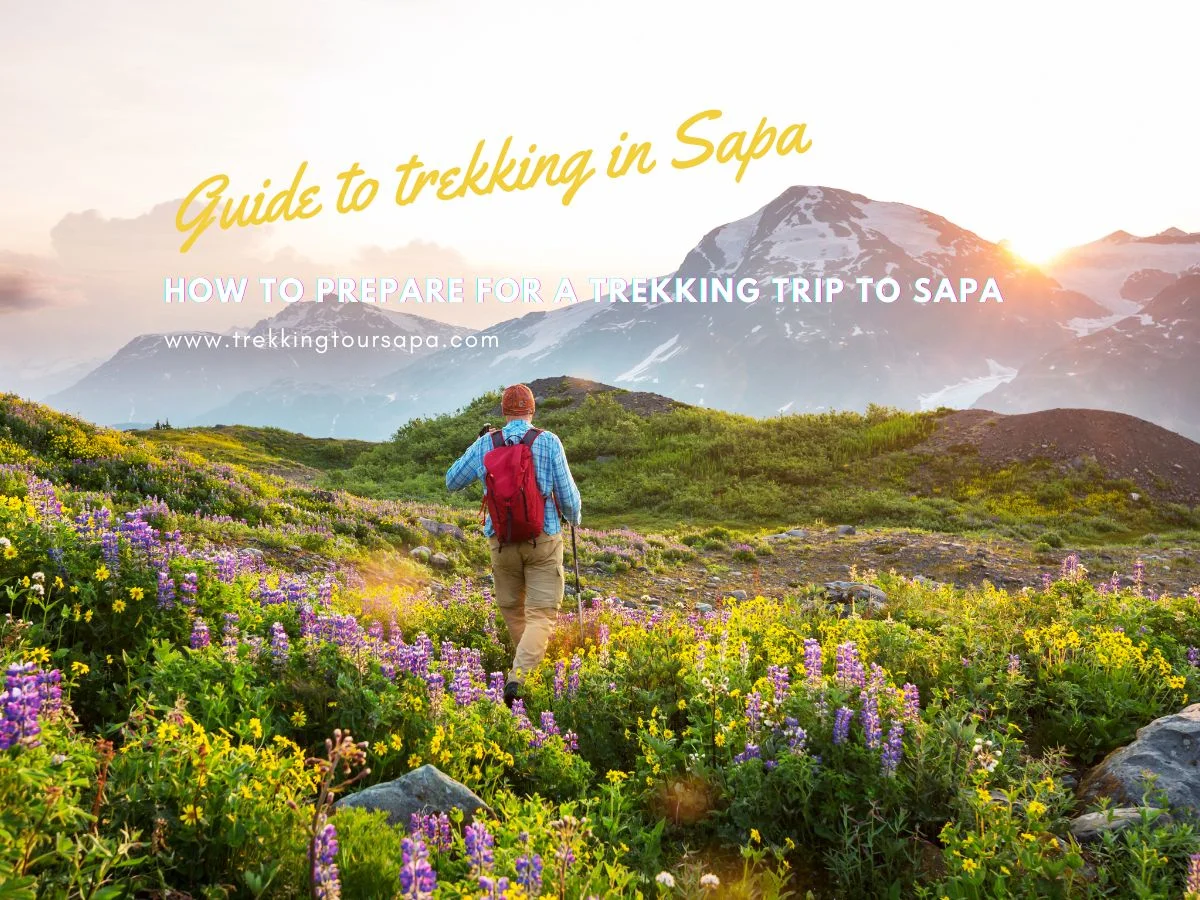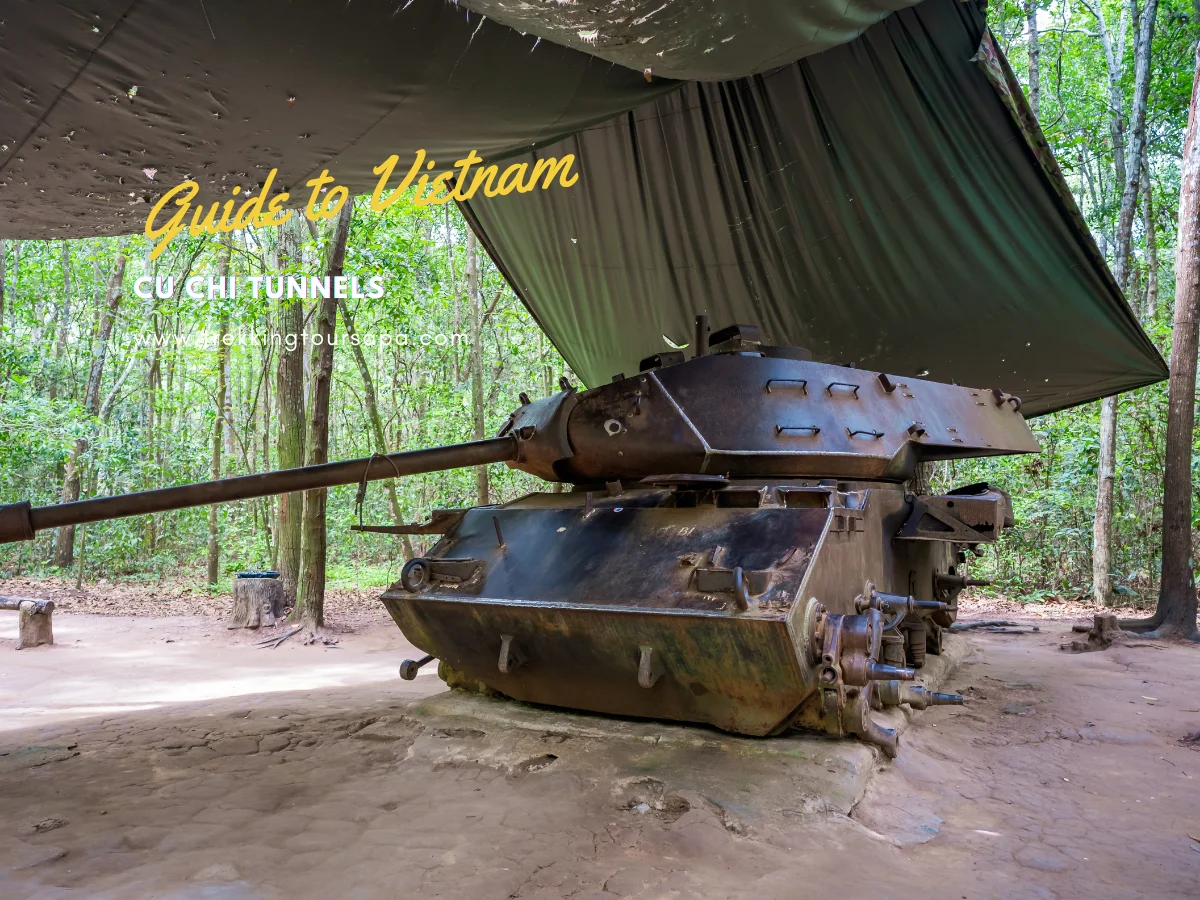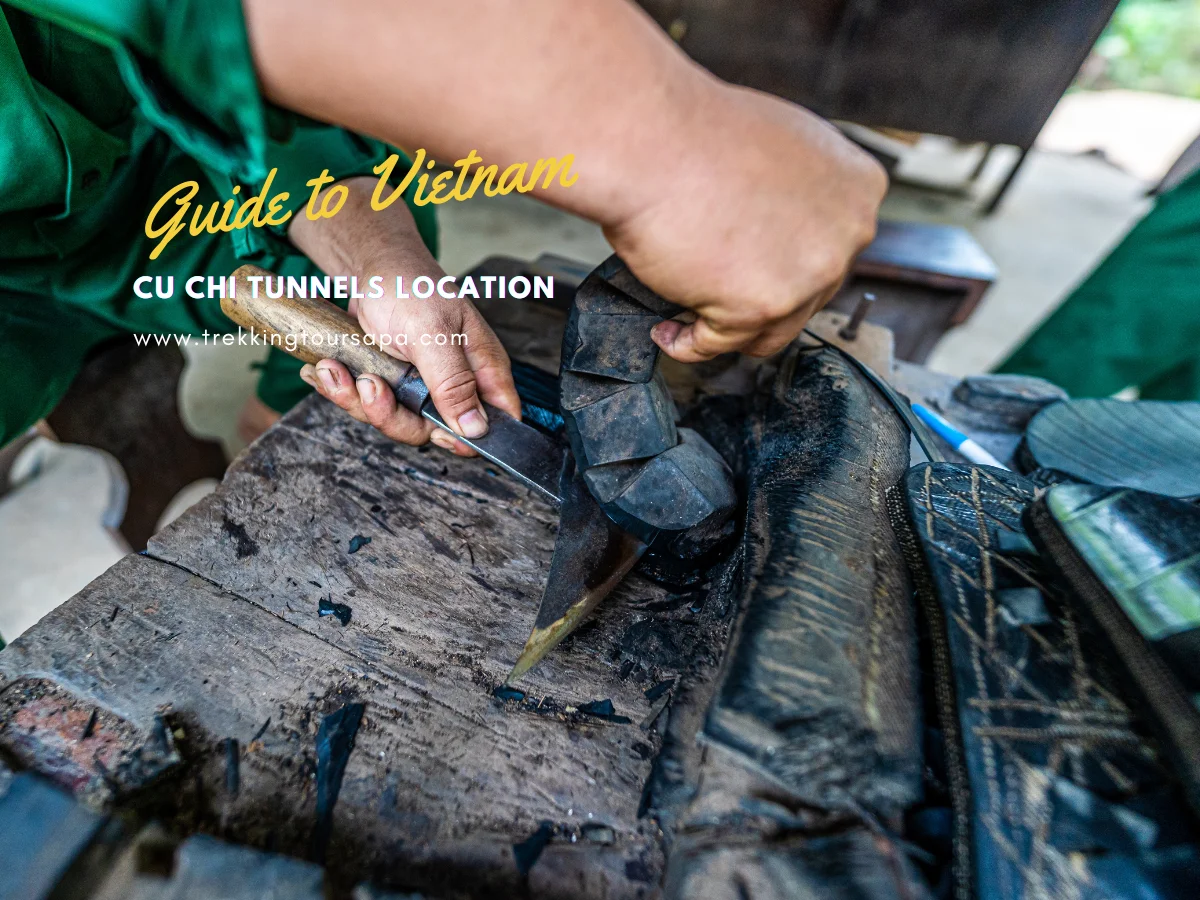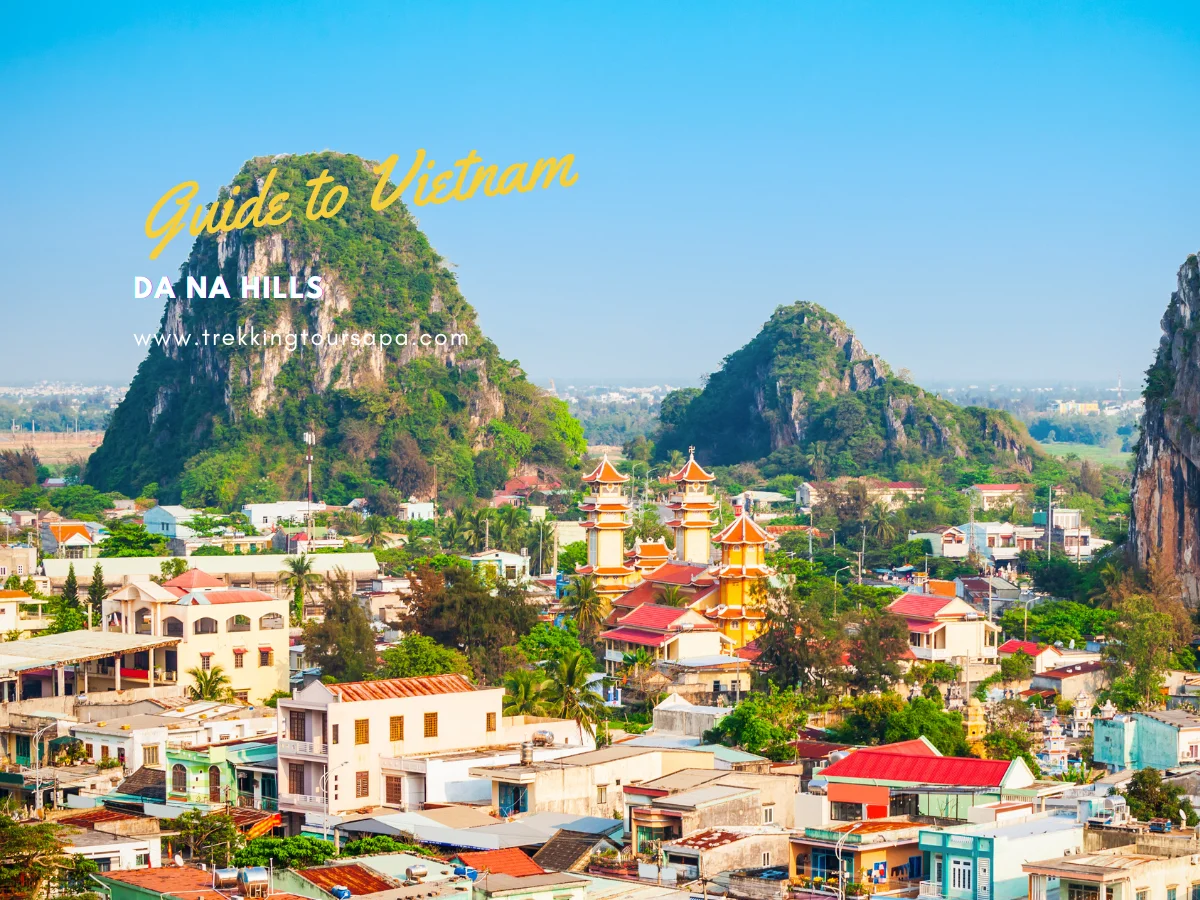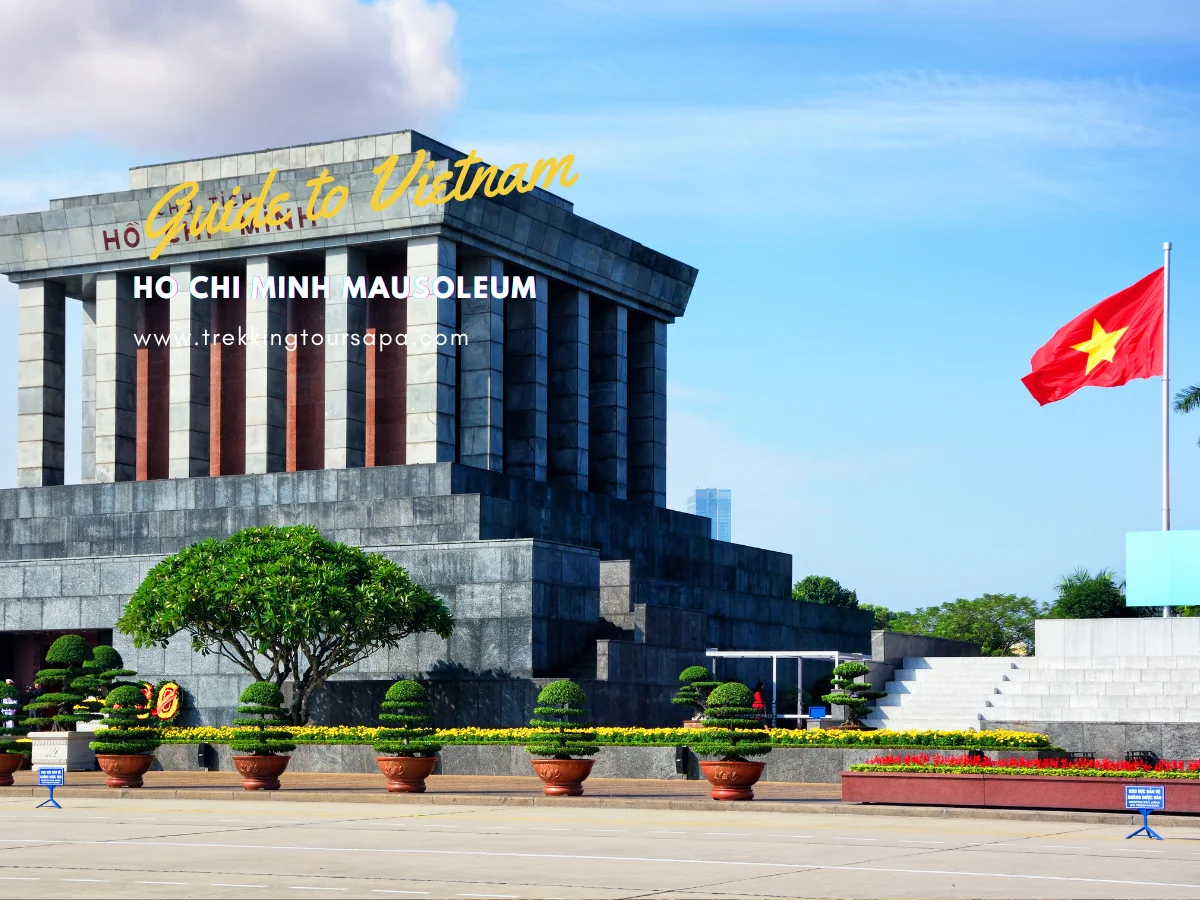Are you planning a trekking trip to Sapa? If so, it’s important to be well-prepared to ensure a successful and enjoyable experience. Sapa, located in the northwest region of Vietnam, offers breathtaking landscapes and unique cultural experiences. In this article, we will guide you through the essential steps to prepare for your trekking adventure in Sapa.
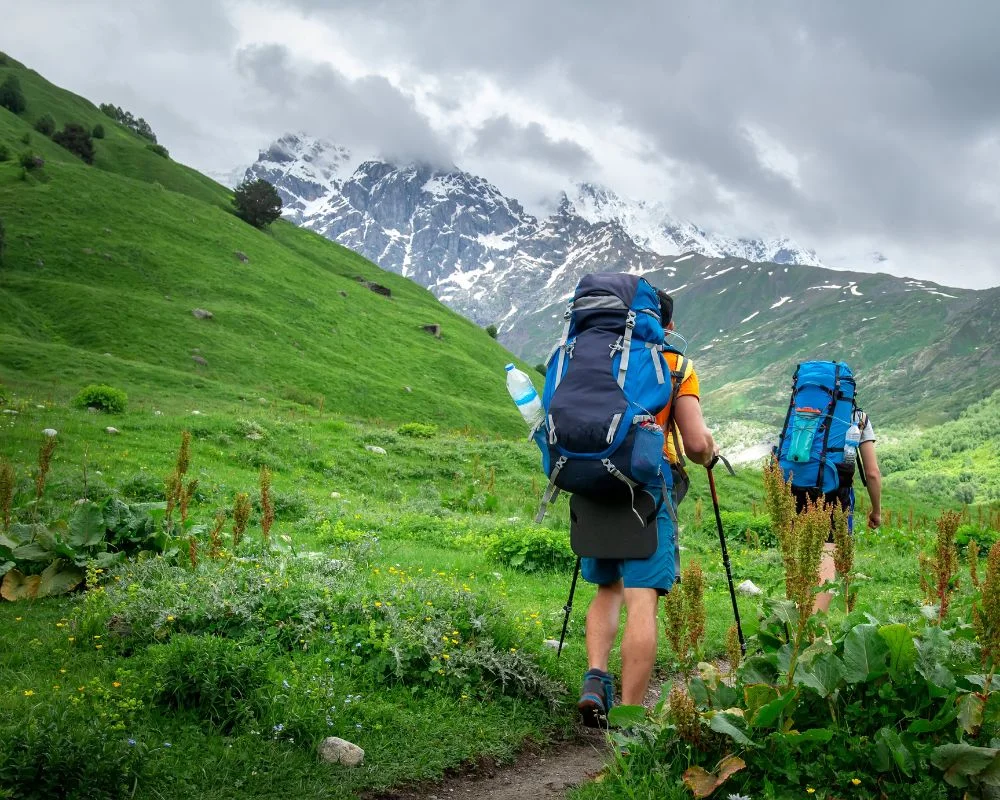
Firstly, it’s crucial to research the trekking routes in Sapa. There are various trails available, each offering different levels of difficulty and scenic views. By familiarizing yourself with the routes, you can choose the one that suits your fitness level and preferences. Additionally, understanding the terrain and elevation changes will help you pack the appropriate gear for your trek. From sturdy hiking boots to lightweight clothing and a reliable backpack, having the right equipment is essential for a comfortable and safe trekking experience. So, let’s dive into the details of how to prepare for your trekking trip to Sapa!
Table of Contents
ToggleResearching the Trekking Routes in Sapa
When researching the trekking routes in Sapa, it is essential to gather comprehensive information to ensure a well-planned and successful trip. Sapa is a popular destination for trekking, and there are multiple routes to choose from, each offering unique landscapes and cultural experiences. To begin your research, consult guidebooks, travel websites, and blogs that provide detailed descriptions of the trekking options available in Sapa. These resources will give you an overview of the difficulty level, duration, and highlights of each route, allowing you to choose the one that best suits your preferences and fitness level.
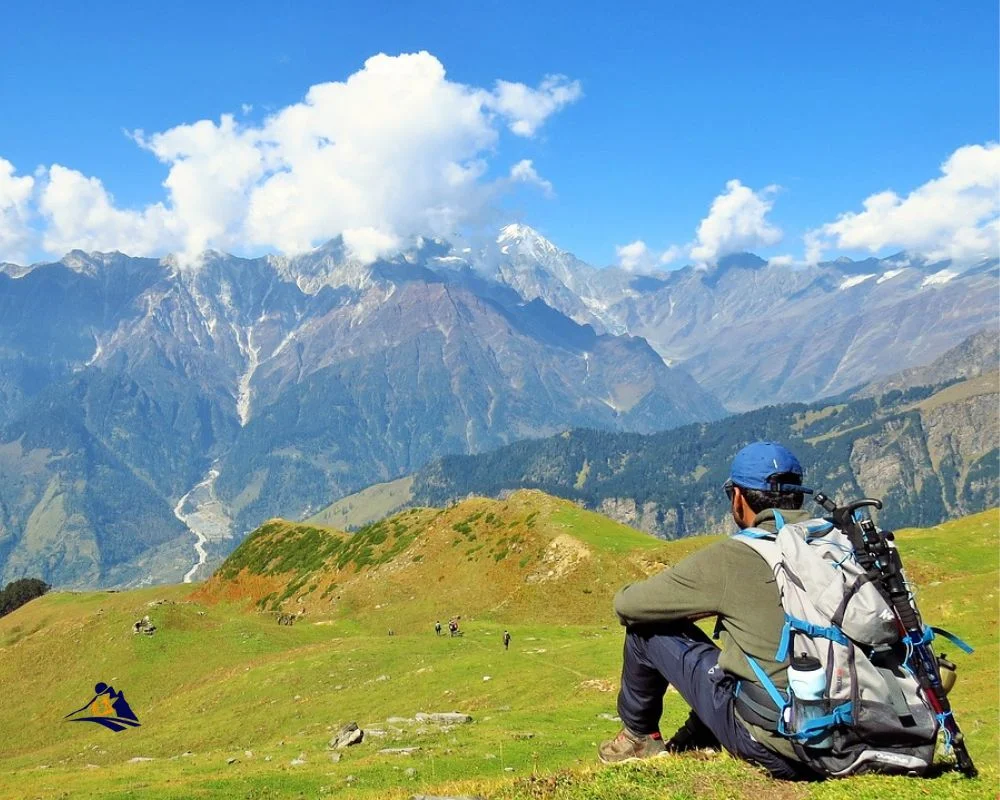
Additionally, it is crucial to read reviews and personal accounts from travelers who have previously completed the treks you are considering. Their insights will give you a realistic picture of what to expect, including any challenges or unexpected obstacles you may encounter along the way. Pay attention to the experiences of fellow trekkers who have similar fitness levels and interests, as their perspectives will be more relevant to your journey. By gathering as much information as possible and considering various sources, you can make informed decisions about which trekking routes in Sapa are most suitable for you, ensuring an enjoyable and fulfilling adventure.
Sapa 1 Day Tours
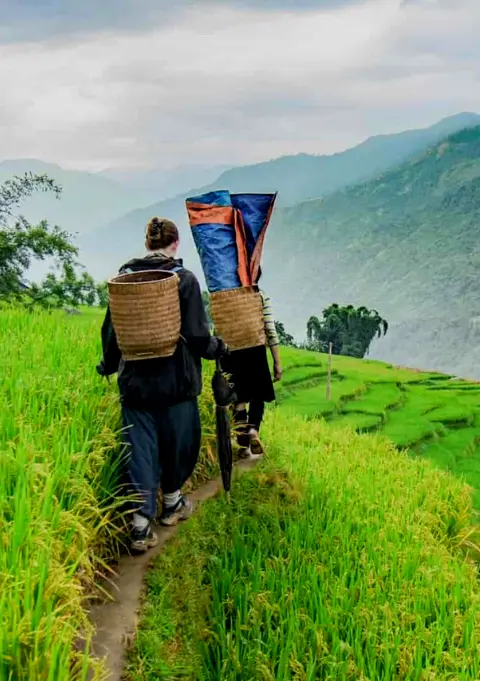
- 1 day experience
- Moderate to challenging
- Cultural immersion & active adventure
- Rice fields, valleys & villages
- Private tours
- Vegan-friendly
Sapa 2 Day Tours
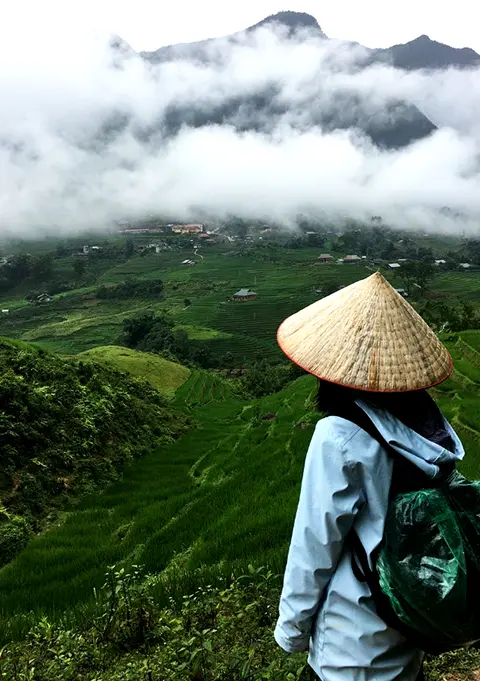
- 2 days 1 night experience
- Moderate to challenging
- Cultural immersion & active adventure
- Mountains, valleys, rice fields and villages
- Private tours
- Vegan-friendly
Sapa 3 Day Tours
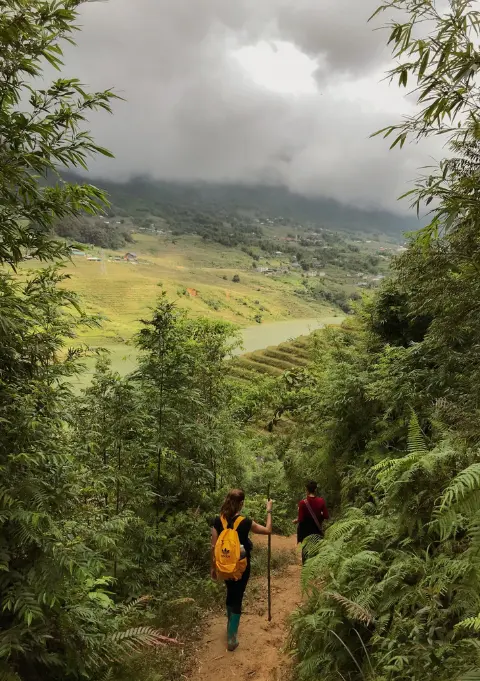
- 3 days 2 night experience
- Moderate to challenging
- Cultural immersion & active adventure
- Mountains, valley, rice fields & villages
- Private tours
- Vegan-friendly
Sapa 4 Day Tours
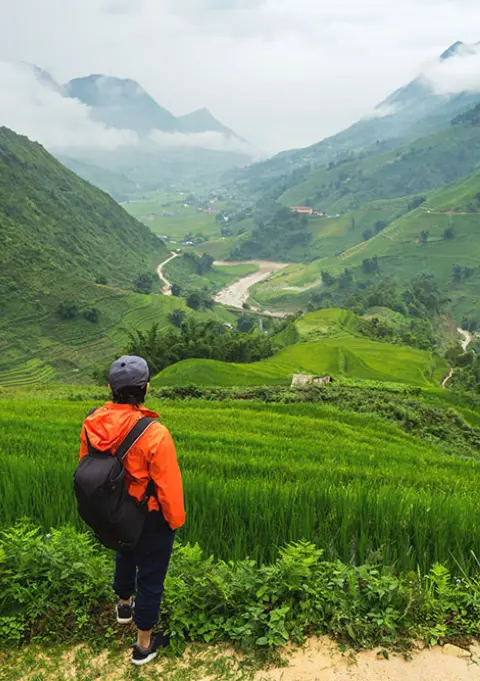
- 4 days 3 night experience
- Moderate to challenging
- Cultural immersion & active adventure
- Mountains, valleys, rice fields & villages
- Private tours – Less Touristic
- Vegan-friendly
Packing the Essential Gear for Your Trek
To ensure you’re fully equipped for your adventure, don’t forget to pack the must-have gear for your Sapa trek. The weather in Sapa can be unpredictable, so it’s important to be prepared for different conditions. Start with a good pair of hiking boots that provide ankle support and have a sturdy grip. You’ll be walking on uneven terrain, so comfortable and reliable footwear is essential. Additionally, pack a waterproof and lightweight jacket to protect yourself from rain or wind. Layering is also key, so bring a few moisture-wicking shirts, a fleece or down jacket for colder temperatures, and a hat and gloves for extra warmth. It’s also a good idea to pack a first aid kit with basic supplies such as band-aids, pain relievers, and blister treatments. Lastly, don’t forget a sturdy backpack to carry all your gear and plenty of water to stay hydrated throughout the trek.
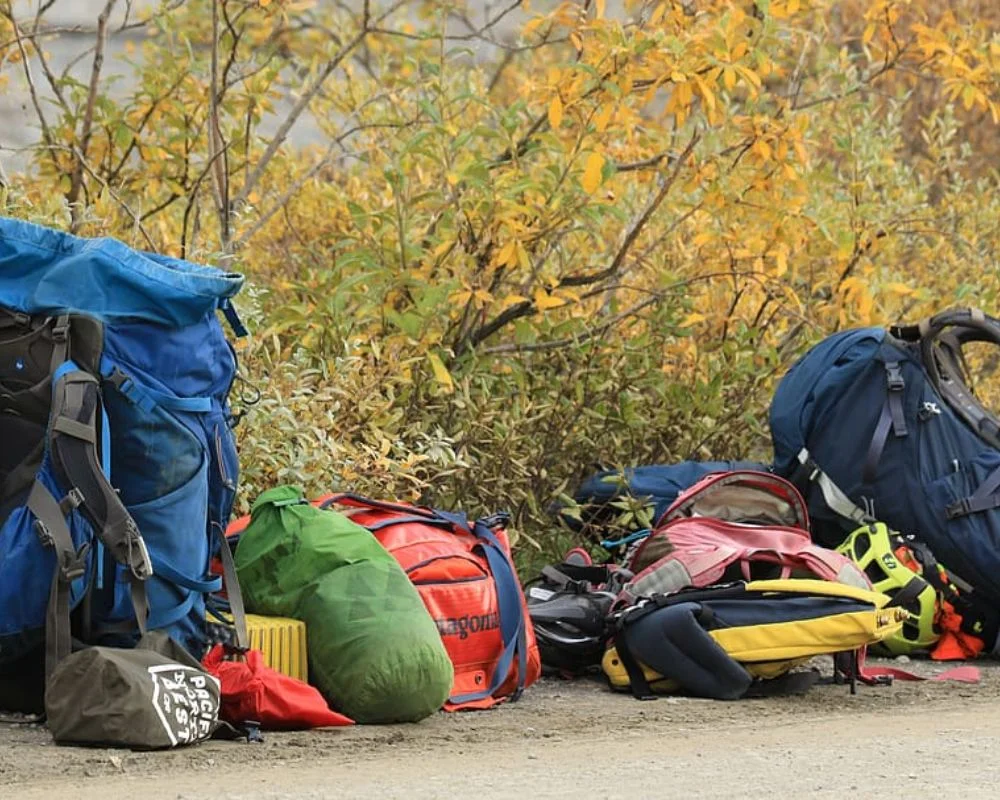
In addition to clothing and footwear, there are a few other essentials you should pack for your Sapa trek. A good quality sleeping bag is crucial, as you will likely be staying in homestays or local villages along the trek. Make sure it is lightweight and compact enough to fit in your backpack. A headlamp or flashlight is also essential for navigating in the dark or case of power outages. It’s a good idea to bring your toiletries, including toilet paper and hand sanitizer, as they may not be readily available in remote areas. Additionally, bring a small towel and a quick-dry travel towel to save space and weight. Lastly, don’t forget to pack some snacks and energy bars to keep you fueled during long hikes. With the right gear, you’ll be well-prepared for your trekking adventure in Sapa.
Understanding the Weather and Climate in Sapa
The weather in Sapa can be unpredictable, so it is essential to be aware of the climate conditions before embarking on your adventure. Sapa experiences a subtropical climate, characterized by four distinct seasons. The summer months, from May to August, are warm and humid, with temperatures ranging from 20 to 30 degrees Celsius. However, it is important to note that sudden rain showers and thunderstorms are common during this time, so packing a waterproof jacket and appropriate footwear is crucial.
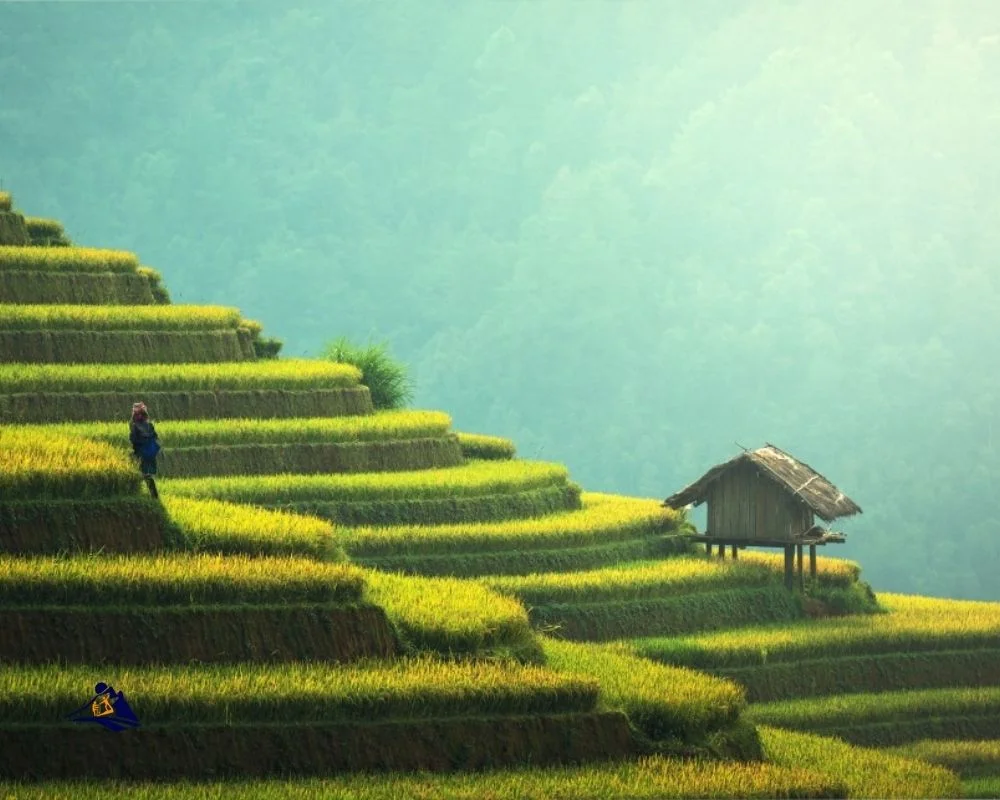
On the other hand, the winter months, from November to February, are chilly and foggy, with temperatures dropping to as low as 0 degrees Celsius. It is recommended to pack warm layers, including thermals, sweaters, and a good quality down jacket to combat the cold weather. The spring and autumn seasons, from March to April and September to October respectively, offer milder temperatures, making them favorable for trekking. However, it is still advisable to pack layers as the weather can change quickly, and it can get chilly in the evenings.
Overall, having a good understanding of the weather and climate in Sapa is essential for a successful trekking trip. Be prepared for sudden changes in weather and pack accordingly to ensure your comfort and safety throughout your adventure.
Sapa 1 Day Tours

- 1 day experience
- Moderate to challenging
- Cultural immersion & active adventure
- Rice fields, valleys & villages
- Private tours
- Vegan-friendly
Sapa 2 Day Tours

- 2 days 1 night experience
- Moderate to challenging
- Cultural immersion & active adventure
- Mountains, valleys, rice fields and villages
- Private tours
- Vegan-friendly
Sapa 3 Day Tours

- 3 days 2 night experience
- Moderate to challenging
- Cultural immersion & active adventure
- Mountains, valley, rice fields & villages
- Private tours
- Vegan-friendly
Sapa 4 Day Tours

- 4 days 3 night experience
- Moderate to challenging
- Cultural immersion & active adventure
- Mountains, valleys, rice fields & villages
- Private tours – Less Touristic
- Vegan-friendly
Exploring the Local Culture and Customs
Immerse yourself in the vibrant local culture and customs of Sapa to truly enhance your adventure. This mountainous region in Vietnam is home to several ethnic minority groups, each with its distinct traditions and way of life. One of the best ways to experience the local culture is by visiting the various ethnic villages scattered throughout the area. You can witness traditional daily activities like farming, weaving, and cooking, and even participate in some of these activities yourself. Interacting with the locals will give you a deeper understanding of their customs and traditions, and you may even have the opportunity to join in on traditional festivals or ceremonies.
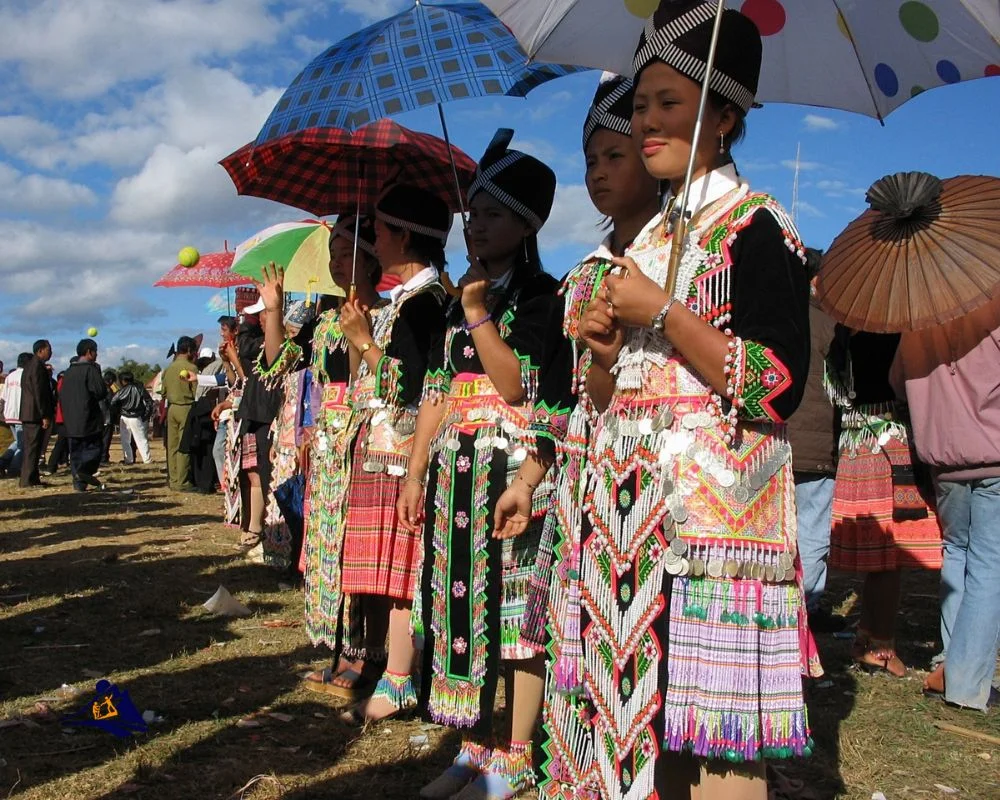
In addition to village visits, exploring the local markets is a must-do when in Sapa. The bustling markets are not only a hub for trade but also a gathering place for the locals. Here, you can find an array of colorful handicrafts, traditional clothing, and locally grown produce. Take some time to wander through the stalls and engage with the friendly vendors. You might even learn a few words of the local dialect! The markets are also a great place to taste traditional dishes and snacks, providing a delicious insight into the local cuisine. By embracing the local culture and customs in Sapa, you will create unforgettable memories and gain a deeper appreciation for this enchanting destination.
Staying Safe and Healthy During Your Trek
Make sure you prioritize your safety and well-being while exploring the breathtaking landscapes of Sapa, by taking necessary precautions and staying mindful of your health. First and foremost, it is crucial to pack appropriate gear and clothing for the trek. Sapa’s weather can be unpredictable, with sudden changes in temperature and rainfall. Therefore, it is essential to bring layers of clothing that can be easily adjusted according to the weather conditions. Additionally, sturdy and comfortable hiking boots are a must to ensure stability and prevent injuries while navigating challenging terrains. Don’t forget to bring a hat, sunglasses, and sunscreen to protect yourself from the strong sun rays at higher altitudes.
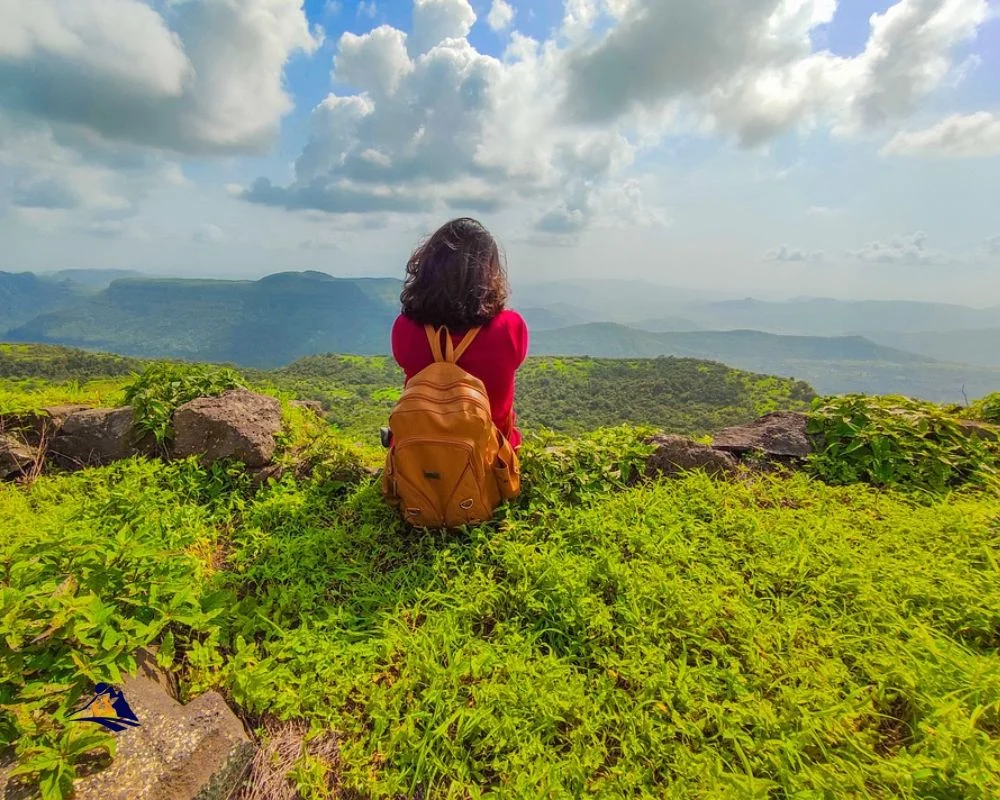
In addition to packing appropriately, it is vital to stay hydrated throughout your trekking trip in Sapa. Carry a reusable water bottle and refill it whenever you come across a safe water source. It is also advisable to carry water purification tablets or a filter in case you need to drink from natural water sources. Furthermore, be mindful of what you eat during your trek. Sapa offers a variety of delicious local cuisine, but it is essential to choose clean and hygienic food establishments. Avoid street food that may not have been prepared under sanitary conditions. Lastly, be cautious of your physical limits and listen to your body. Take breaks when needed and don’t push yourself too hard, especially if you are not accustomed to high-altitude treks. By following these guidelines, you can ensure a safe and healthy trekking experience in Sapa.
How To Prepare For A Trekking Trip To Sapa Frequently Asked Questions
How long does it take to complete a trekking trip in Sapa?
A trekking trip in Sapa can take anywhere from 1 to 5 days, depending on the route and the pace of the hikers. It’s best to plan for at least 2-3 days to fully experience the beauty of the region.
Are there any age restrictions for trekking in Sapa?
There are no age restrictions for trekking in Sapa. However, it is important to consider the physical fitness and endurance of individuals, especially for longer and more challenging treks.
Can I hire a local guide to accompany me during the trek?
Yes, you can hire a local guide to accompany you during the trek in Sapa. They can provide valuable insights, ensure your safety, and enhance your overall experience in the region.
Are there any specific permits required for trekking in Sapa?
No, there are no specific permits required for trekking in Sapa. However, it is always a good idea to check with local authorities or tour operators for any specific regulations or guidelines.
What are the options for accommodation during a trekking trip in Sapa?
There are various accommodation options available during a trekking trip in Sapa. From homestays with local families to guesthouses and hotels, travelers can choose based on their preferences and budget.
Conclusion
In conclusion, preparing for a trekking trip to Sapa requires careful research, proper packing, and an understanding of the weather and local culture. By researching the trekking routes in advance, you can ensure that you choose the best one for your skill level and preferences. Packing the essential gear, such as sturdy hiking shoes, a waterproof jacket, and a first aid kit, will help you stay comfortable and safe during your trek. Understanding the weather and climate in Sapa is crucial for knowing what to expect and how to dress accordingly. Additionally, taking the time to explore the local culture and customs will enhance your experience and allow you to connect with the community. Finally, staying safe and healthy during your trek should be a top priority. This includes staying hydrated, wearing sunscreen, and following any safety guidelines provided by your tour guide or local authorities. By taking these steps, you can ensure a memorable and enjoyable trekking trip to Sapa.
Sapa 1 Day Tours

- 1 day experience
- Moderate to challenging
- Cultural immersion & active adventure
- Rice fields, valleys & villages
- Private tours
- Vegan-friendly
Sapa 2 Day Tours

- 2 days 1 night experience
- Moderate to challenging
- Cultural immersion & active adventure
- Mountains, valleys, rice fields and villages
- Private tours
- Vegan-friendly
Sapa 3 Day Tours

- 3 days 2 night experience
- Moderate to challenging
- Cultural immersion & active adventure
- Mountains, valley, rice fields & villages
- Private tours
- Vegan-friendly
Sapa 4 Day Tours

- 4 days 3 night experience
- Moderate to challenging
- Cultural immersion & active adventure
- Mountains, valleys, rice fields & villages
- Private tours – Less Touristic
- Vegan-friendly
